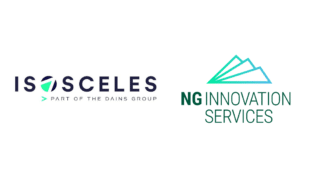Today’s Data Room is traditionally now a virtual room and not a physical one; it is a cloud-based repository for confidentially storing, organising and distributing key information and documents.
Having a Data Room can significantly enhance the due diligence process in an M&A transaction. Not only does it enable the selling company to share documents with potential buyers located anywhere in the world in a controlled and secure manner; it also allows deals to close more quickly and reduces value erosion.
Related Article | How to value your technology business
With cybercrimes on the increase in terms of quantity and sophistication, a Data Room will keep crucial data and documents safe and secure. It can also keep a business GDPR compliant as well.
Why do I need a virtual Data Room?
- The Data Room allows you to upload and store the large volumes of data needed for the due diligence process.
- It enables you to distribute the information to the specific people who need it quickly, regardless of their location, speeding up the data evaluation process.
- With multi-factor authentication tools, it ensures that no one can see confidential information unless you’ve permitted them to do so.
- Watermarking and other features prevent documents from being copied.
- User activity can be tracked and audited with specific permissions set at the document and user level.
- Documents can be organised and labelled, giving a detailed view of the status of the due diligence process and what actions are needed moving forward.
- The Data Room will also let the business manage different versions of the same document. For example, when you are developing a contract.
- The process of putting the Data Room together can identify gaps and missing information well in advance so you can rectify any issues and get advice where necessary; reducing surprises on due diligence.
Related Article| How to survive HR due diligence
When do I need to set one up?
We encourage our clients to consider building and maintaining their Data Room long before they start to think about an exit rather than waiting until a transaction is underway.
The main reasons for this are:
- Pulling a Data Room together is not a small undertaking. There will be documents and data missing. Getting these in order may take effort, so do it when you have the luxury of some spare time and not when you find yourself up against the clock in a transaction.
- You never know when an unsolicited approach may come your way.
- A well-maintained Data Room signals an operationally efficient company to a potential buyer giving confidence in the purchase, a more straightforward due diligence process and less risk of price adjustment.
- It is not easy to keep a potential acquisition confidential and quiet if you are racing around trying to get information together for the Data Room. Doing this in advance of an approach will not alert employees to a potential sale.
- A sales and due diligence process can put severe pressure on the unprepared business as key resources will be diverted from the business to supply data and information.
- By pulling the Data Room together in advance of going to the market means our clients can have a ‘friendly audit’ to double-check all is in order.
What do I need to set up a Data Room?
Generic file-sharing services such as corporate email, Dropbox or Google Drive are perfectly adequate when it comes to setting up a ‘soft’ Data Room ahead of a sale. However, when the time comes for the due diligence process to begin, you will need to use a Data Room service provider. Generic file-sharing services may seem like a comparable but cheaper alternative, but often this is not the case. Emails can be hacked, and the basic permission settings in the other file-sharing services make it all too easy to share data with the wrong people, compromising your confidential information and potentially allowing cybercriminals access.
What data do I need to include?
Typically, everything material about the business of the selling company will need to be included in the Data Room:
- All corporate data
- Share capital, share options and other securities
- Financial and tax documents
- Past acquisitions and internal restructures
- Business plans, forecasts and budgets
- Operational policies – GDP, cybersecurity, etc.
- All data and documents relating to property, assets and lease arrangements
- Intellectual Property (IP) and related agreements
- Any other miscellaneous agreements
- Customers, sales and marketing data
- Suppliers’ and manufacturers’ agreements and data
- Product data
- Data on litigation and disputes
- All insurance policies
- HR contracts, incentive plans, commissions handbooks, policies and procedures
- Press and PR
- Any other related transactions
How can Isosceles help?
If you think we can help prepare your business for exit, please do not hesitate to get in touch info@ifteam.co.uk



